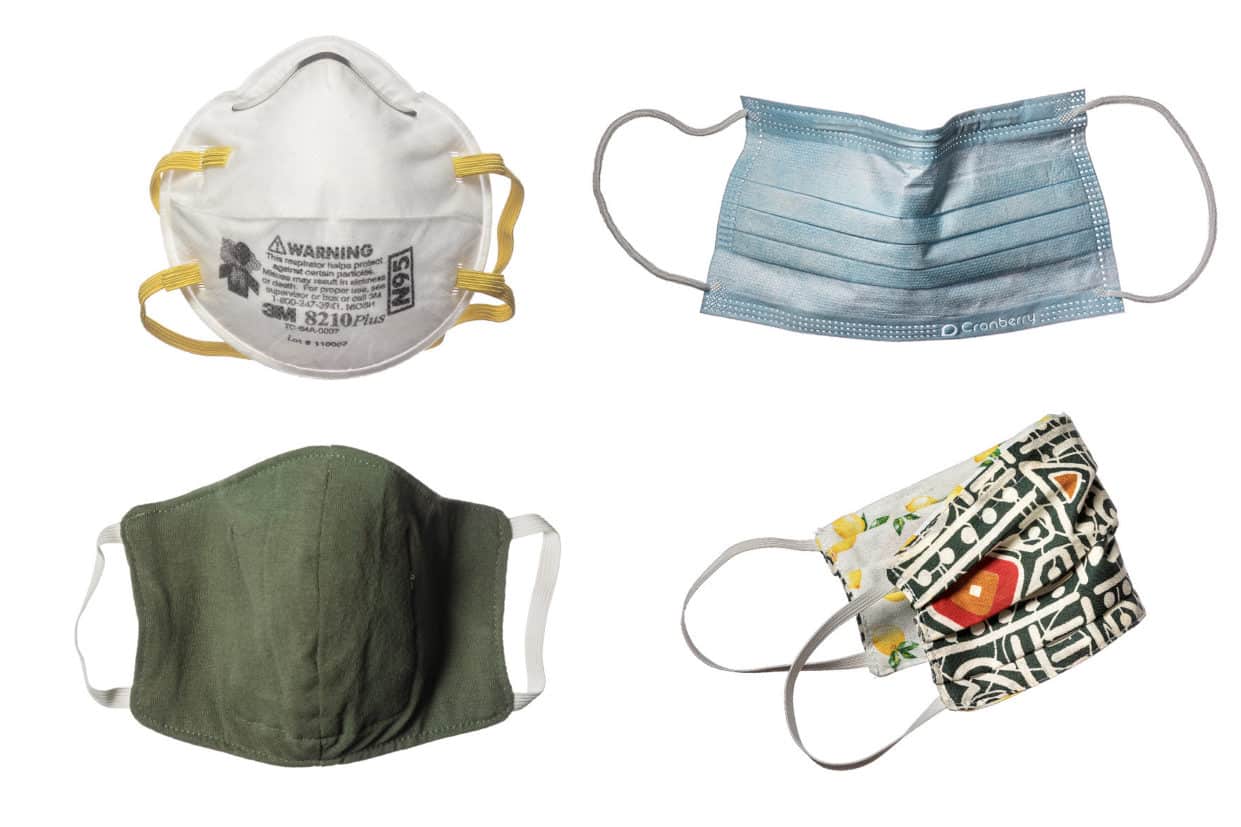We face a different battle today, and one of our best weapons against the coronavirus is a face mask. It is one of the best tools to prevent the spread of the virus aside from proper handwashing, social distancing, and staying at home.
Unlike the two things we can do namely, proper hand washing and social distancing, face masks provide many options. With this, we’re sure that the majority are still a bit confused about what level of protection these different masks offer, and that’s why we’re here.
Surgical Mask
This is also called a procedural or medical mask with a loose fit and protects the wearer’s mouth and nose. It protects the wearer’s mouth and nose from droplets, sprays, or splashes of other people that contain germs.
The surgical mask also helps in protecting the wearer from inhaling large particles suspended in the air. Aside from protecting the wearer, it also protects other people from the wearer’s saliva, droplets, or respirator secretion of the wearer.
Therefore, the level of protection that the surgical mask provides from the Covid-19 virus prevents the wearer from spreading infectious droplets. It’s also important to note that this type of mask cannot be washed and reused.
N95 Mask
These are respirators which provide more protection compared to the surgical and cloth mask. As the name suggests, the mask filters out small and large particles, specifically up to 95% of very tiny particles.
It has a snugly fit and can filter the air around them through the masks. It prevents the wearer from unknowingly spreading infectious droplets to other people, but it also protects the wearer from infectious droplets.
Nonetheless, these masks are recommended and designed to be used for medical purposes. There is currently a shortage of supply for N95 masks, that’s why it’s essential to ensure that healthcare workers have access to these masks as their safety depends on this type.
Cloth Mask
Paper masks or cloth masks are the best alternatives to surgical and N95 masks now that there has been a shortage in the latter’s supply. These are easy to access and make and are washable, too.
Although it does not provide the same protection level with that of the surgical mask and N95 mask, the cloth mask can still protect other people if the wearer is carrying an infection. Wearing cloth masks helps us keep others safe, especially if we don’t know that we’re carrying the virus.
Filters for Cloth Masks
If you are using cloth masks, you can also add a filter on it. To do this, make sure that your mask has a pocket to hold the filter. You can use materials such as coffee filters, unused vacuum cleaner bags, HVAC anti-allergy filters, or other air filter materials.
However, it’s important to note that there are still no conclusive data that supports that filters can be used for added protection against COVID-19. Therefore, do not use air filters or additional layers to your cloth maks to make your breathing uncomfortable.
Buying Face Masks
Some have access to surgical masks; however, if you want to add more options and want to buy a cloth maks, make sure that you look for the following:
- The cloth mask should at least have two layers of fabric.
- The masks’ size should be wide enough to cover your mouth and nose with any significant gaps.
- Find a mask with adjustable ear loops or ties.
As precautionary measures, it is best to stay at home if you have trouble breathing when wearing a mask. Do not use the mask as a substitute for social distancing. Ensure that you still keep the minimum distance away from other people and do not go to places with large crowds.
Lastly, don’t forget to wash your cloth mask as soon as you remove it. Don’t worry, and it’s safe to wash along with your clothes!

